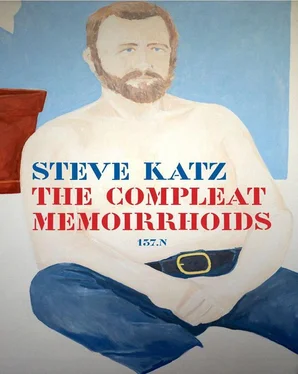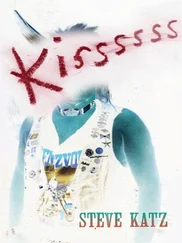Gary spells it out for us. He’s an astroarchaeologist working on ancient Inca concepts of the night sky by collecting stories. My friend, Sinda Gregory, once was married to him. She arranged for Avrum and myself to stay at his apartment in Cuzco. He offers to let us follow him into the field. What a privilege, we think. To get to Moray we walk a couple of miles from where we leave the car. The site is in a verdant bowl, surrounded by foothills, with the snow-capped Andes in the distance. The beautiful landscape tricks you into thinking it is hospitable. The spaciousness, the wide sweep of light, makes you feel airborne, cousin to the hawk. The concentric circles of these inverted “pyramids” taunt your virtual wings into a helical drift. The “pyramids” are drilled into the earth like a frozen circling of condors. One theory is that the concentric terraces were at one time covered in gold, focusing the sun back on itself. A delightful idea, tons of gold and a great homage to the sun. A more likely explanation is that it was an experimental agricultural station, and that the different levels of terrace correspond to different altitudes and microclimates down the Urubomba Valley, to help the farmers know when to plant. I want to remain here drifting among these odd earthworks for several more hours, but our objective is to follow Gary up the mountain to the small village where he interviews people to gather stories of the night sky.
Avrum and I trudge after Gary up the ancient footpath. The town is at over 16,000 feet. The local people are small and compact, with big chests and lung capacities. Because most European miners can’t work at this altitude, and the native people won’t work in the mines, the mineral resources of the Andes are mostly intact. Though the people of his town, Gary explains, are very poor, the imperialists can’t get them to violate their mountains. Some of them still wear traditional Inca garb. He walks the trail without effort. For me, after a certain point, each step is torture. The day, which I noted as beautiful when we were resting at Moray, has turned into a grim gasping game of survival for me. I chew coca leaves, with the banana ash that catalyzes the release of the alkaloids. It works only minimally. I am near blackout as we approach the end of the walk. Gary has rented half of a potato shed to stay in while he records the local people’s star stories. He pays them a dollar for each. They line up to tell their stories, hints of mischief in their broad smiles. They are happy to make things up. Gary reasons that whatever they say, whether “true” or not, is useful information about how they see the stars of the southern hemisphere. He later publishes an important book about his research.
I lie down outside the shed. Avrum, who is in great shape, is having trouble finding enough oxygen to breathe. Gary is used to it, and goes about his business. I black out and see stars. I don’t know if they are the right ones, but I see stars. I don’t tell Gary my story. I’ll never get out of this potato shed alive. That’s the melodrama. Sleep comes like a foretaste of death. Somehow, in the morning, we stumble back to more comfortable altitude. That’s how Peru taught me to enjoy breathing, and to be grateful for the gift of oxygen.
Ozark was small but mighty. She was black and tan, had a lot of terrier in her. We picked her out of a box of puppies offered for free by a mom and daughter in a grocery parking lot in Ozark, Missouri. She grew up in a stone house outside of Ithaca, New York. She came with us when we went to work for the Forest Service in Idaho, and was never afraid to chase a bear, or scatter elk. She was great company when I went down to the spring to fill the water bags. She flushed a coyote that chased her yelping out of the woods. The coyote stopped when it saw me, and ran away. She fled from the doe with twin fawns that then turned on me and sent me up a tree. She was all spirit, a happy, feisty dog. Ozark came with us to Eugene, Oregon, where among other changes, we were about to become parents. We were twenty-one. Jingle rode up to the lookout as a slim exrodeo queen from Winnemucca, Nevada. She came out of the wilderness of the Clearwater National Forest with a melon in her belly.
She was determined to nurse our child, had been preparing to do that, she told me, since she was four years old. It was December, raining as usual in Eugene, Oregon, when she entered Sacred Heart Hospital for the second time. The first time was a false alarm. This time was for real. The hospital was across the street from our house. Husbands were not allowed to witness the delivery, so Ozark and I waited at home for news of the arrival of Avrum. I felt like a young recruit going into battle for the first time. I had never been a father before. I was twenty-one. I had never been anything before. Ozark was a comfort.
They came home on a rainy Sunday afternoon. As Jingle tells it, her waters burst all over the nurse’s face and clothes as she bent over to inspect the process. It was an embarrassment she brought home as we entered the house, into the stage of life called young family. Jingle immediately started to nurse. She tried to nurse. She had a fever. She went to bed and did nothing but nurse. Her milk was failing. She was miserable. How could she accept this? For so many years she had anticipated with pleasure the responsibility of nursing her baby. Nature was failing her now. I felt her forehead. It was burning. Avrum sucked at her nipple, turned away and cried, sucked again. No milk. Nothing. I thought of my childhood. All through it I’d been taunted by my peers for having tits. The cruel kids called me “Tits”. That had been a deep humiliation, but this would be a vindication, if only I could nurse the boy. I would have done it, just to ease my wife’s despair. I was trapped in the biological harness of my sex.
What could we do? Jingle had been so focused on nursing we hadn’t prepared a fall back position. Adele Davis was her guru. She advised not even to prepare any other system. Mother’s milk was psychological. To even entertain anything else could screw up the natural process. I felt Jingle’s forehead. She was burning. No milk. The baby was screaming. Not even Billie Holiday singing “God Bless The Child” could cut into me like that. “Get bottles,” said Jingle, out of her delirium. “What?” “Bottles. Formula.” I understood what she meant. I’d never given it a thought. It was Sunday night. We were new in town, had no friends. It was raining, new moon dark. Nothing was open. I called the hospital. They directed me to the one open pharmacy in town. No, no doctor was available till tomorrow. Jingle could have gone back to the hospital. But she wouldn’t go back. That much we knew. I left her with our son. She was delirious with fever. I jumped into the Beetle, and with sirens wailing in my mind, headed across town for the pharmacy. A kind clerk, who saw my panic, explained the bottles and formula mystery.
Before I opened the door, I could hear the baby crying. He was still alive. Jingle was still trying to nurse. In the crumple of sheets she looked like she’d been abandoned in the desert. Ozark, our best friend, had thrown up all over the living room. It was too much for me. No one who hasn’t been through the pleasures of the parenting nightmare, can understand this panic. It is terminal. What do I do first? Clean up the dog vomit, comfort the wife, feed the baby? What I did is unthinkable now. I threw Ozark out the window. It was only one floor down, and she didn’t even yelp as she landed in some bushes.
“Boil the bottles. Sterilize,” commanded Jingle, hoarse from fever. I did everything she said. I mixed the formula. I filled a sterile bottle with formula, stuck it in boiling water, tested the heat on my wrist. When it felt right, I picked Avrum up. Jingle had passed out in her fever. Was she going to die? Would I have to raise the kid by myself? I’d never held a baby before. So fragile. It seemed to teeter on the edge of life. I didn’t know what I was doing, had never thought about it. I kept pushing the nipple in and out of its mouth, as if this was a blowjob. I fear I ruined the kid for life. My own kid. I was weeping. He got fed. He burped. He quieted down. This was miraculous. I lay him down next to his mother in bed. She was feverish, but breathing. I cleaned up the dog vomit. Jingle and baby slept peacefully. I went outside in the rain and looked in the bushes for Ozark. I called her name. She was gone. I set up some formula to prepare for the next feeding, then fell asleep in the easy chair. The next day we found out Jingle had pneumonia. She never got her milk back until Nikolai was born. He nursed for nine months. We never saw Ozark again.
Читать дальше












